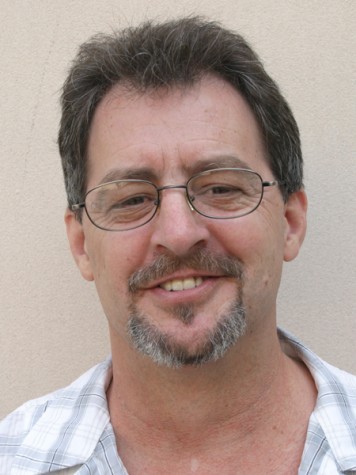Hundreds of people gathered at the Turkish embassy in Los Angeles on April 24 to protest against the Turkish government’s t denial of the Armenian genocide.
The genocide was from 1915 through 1923 and resulted in the extermination of 1.5 million Armenians. Descendants of genocide victims and survivors reside in California, and especially in Glendale, which boasts the largest Armenian population outside of Armenia.
The protest, which was organized by the Armenian Youth Federation (AYF) began at 4 p.m. Men, women and children of different backgrounds all rallied under the same goal; to gain recognition of th genocide not just by the Turkish government, but by the rest of the world.
The AYF, which was founded in Boston in 1933 by General Karekin Njdeh, is the youth organization of the Armenian Revolutionary Federation and has played a pivotal role in organizing events to raise awareness for the genocide.
The AYF had school buses to transport those who could not make it to the embassy on their own. The buses gathered in front of Saint Mary’s Armenian church, located at 500 S. Central Ave., Glendale, at 2 p.m. and took anybody who wanted to attend. Others opted to drive and/or carpool ot the Turkish embassy, which is located on Wilshire Blvd., in Los Angeles.
At the protest there were hundreds of people holding up signs with sayings such as “1915 never again” and “Darfur, the modern day genocide,” which is about Darfur’s Janjaweed militia group killing off African farmers and their families. The roads were blocked off while people were circling the embassy and chanting “Turkey run, Turkey hide, Turkey’s guilty of genocide.”
Narek Balagyozyan of Glendale was among the group of protestors.
“The continual denial of the genocide by the Turkish government pollutes the world and doesn’t stop further genocides from going on, such as those in Rwanda and Darfur,” said Balagyozyan.
Many non-Armenians were also present for the protest. One protest0r, Michael Tau said, “I’m here because I have a lot of Armenian friends and I think what the Turkish government did is wrong,” he said. “They keep denying it even though there is a lot of evidence. They have to admit what they did because denying is setting an example for others that they can get away with murder too.”
Along with the continual denial of the genocide, Turkey “may be witnessing a growth of brutal nationalism,” according to Turkish writer Taner Akcam, who spoke on campus on April 23. An open opponent to the denial of the genocide, Akcam was jailed in 1976 in Turkey after writing a journal about Turkey’s treatment of the Kurdish population. After a year, he escaped and received political asylum in Germany. Akcam was on campus to speak about the genocide and to promote his new book “A Shameful Act: The Armenian Genocide and the Question of Turkish Responsibility.”
Turkey has seen a recent surge of anti-Armenian sentiments and Akcam believes it is due to the younger Turkish population feeling threatened by Christian Armenians. On January 19, Turkish-Armenian journalist, Hrant Dink, was killed by 17-year-old ultra-nationalist Ogun Samast. Dink was an outspoken proponent for genocide recognition and many considered him to be the voice of Armenians in Turkey.
However, according to Akcam, denial is not the attitude of the general Turkish population. The denial of the genocide comes from the government. Akcam believes that the moral aspect of the genocide is one of the main reasons the Turkish government denies its actions.
“Many founders of Turkey participated in the genocide and made money from it,” he said. “Turkey must declare some of its founding fathers as thieves and murderers.”
Another reason might be monetary.
Akcam stated that Turkey admitting to the genocide would mean reparations and the government does not want to compensate for losses, such as land or money.
In order for Turkey to recognize the genocide, its relations with Armenia must improve.
“Turks and Armenians understanding each other is more powerful than political resolutions,” said Akcam. “Current relations between the two countries is more important that having the U.S. and UN putting pressure on Turkey by recognizing the genocide.”
AYF member and protestor Mary Ashdjian, who was also one of the organizers of the protest, said, “I think it’s awesome that we have a lot of Armenian supporters as well as non-Armenian supporters.”
“This protest is not just for the Armenian genocide but for the genocide going on in Darfur. The U.S. government also needs to recognize the genocide so it can stop further killings from happening,” she added.
Currently Sen. Hillary Clinton and Senate Majority Leader Harry Reid have agreed to sponsor Senate Resolution 106, the Armenian Genocide Resolution.
“We’re very gratified that two prominent national leaders – Hillary Clinton and Harry Reid – agreed today to join with a growing number of their Senate colleagues in supporting the passage of the Armenian Genocide Resolution,” said Aram Hamparian, executive director for the Armenian National Committee of America, in a statement released to anca.org
One young protestor, Lucy Hueng, 16, said that “the genocide isn’t just an Armenian thing; it’s a human thing.” “It’s something that all people should stand up for so it doesn’t happen again.”

